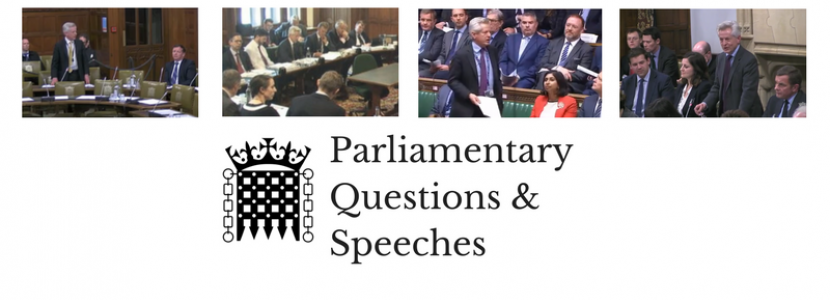
Responding to the Home Secretary’s statement on the status of some of the ‘Windrush generation’ who arrived in the UK before 1973 and may not have proof of their right to be here, Gloucester’s MP Richard Graham has given his absolute commitment that no-one arriving at that time will lose any right to live in the UK, their access to NHS services, pensions or any welfare benefits. “I want to be absolutely clear,” he said, “that the ‘Windrush generation’ are all here totally legally and are hugely valued members of our Gloucester community, who will get my full help if any issue arises.”
The Home Office has set up a special unit to help with any enquiries from those who settled here, largely from the Caribbean, before 1973, some of whom may not have the documentation (like a passport) to prove their right to stay. And Home Secretary Amber Rudd confirmed, in answer to Richard’s question on this, that MPs would have a hotline for he and others to others to help constituents with concerns. “Anyone of this generation,” Richard emphasised, “with any concern can ring my office on 501167, give their name, address and date of birth and my office will check that they are correctly registered.”
Gloucester’s MP said the city has around 3,800 residents of Afro-Caribbean heritage, many of whom arrived from Jamaica in the decades after the Windrush docked in 1948. “They came to work, many at the specific request of the British government, particularly in the NHS, and have made an enormous contribution to our city. Like the Home Secretary I am appalled that any of that generation should now be at risk of being treated as if there was a question mark about their right to be here, and I want to make sure that everyone’s status is confirmed before any problem might arise.”
The ‘Windrush’ generation arrived in the UK between 1948 and 1971 from Caribbean countries, named after the first ship which brought workers from Jamaica, Trinidad and Tobago. The ship carried 492 passengers, who were deemed to be settled in the UK under the legislation at the time when they arrived: meaning they didn’t need documentation to prove their right to be in the UK.
The vast majority will have the documentation, but in some cases where this is not the case they now require evidence to access certain services, such as NHS treatment and rented accommodation. The Home Secretary said yesterday that a new unit would be set up to help resolve any issue (free of charge), and the telephone number is via UKVI on 0300 123 2241.
Richard raised the importance of supporting former Commonwealth citizens, especially during the Commonwealth Heads of Government Meeting taking place in London. Richard said, “the Prime Minister is meeting Commonwealth Heads of State and Heads of Governments this week to celebrate our unique and important relationship with Commonwealth members and this is a good moment to make sure that the Caribbean community here are well looked after.”
Richard’s office can be contacted via 01452 501167 or [email protected].
